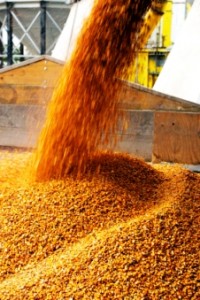Astringency, a bitter tea-bag like flavor in beer is closely associated with mash problems and all-grain brewing, but this week we’ll look at the risk of astringency for extract beer brewers as well. It is not well known that you can introduce astringency when steeping grains for extract. In particular using too much water when steeping or steeping too hot will result in tannins in your beer.
Astringency and its Root Causes
Astringency is a bitter, sour flavor akin to sucking on a tea bag. It comes from tannins, which is a polyphenol chemical that is prevalent in grain husks. It is most common in all grain beers and can occur when working at too high a temperature or pH while mashing your grains to brew beer. A high (alkaline) pH (above 6.0) tends to extract more tannins from the grain husks, and the same thing happens if you raise the mash temperature too high by sparging with water that’s too hot.
Astringency when Steeping Grains for Extracts
What is not well known is that you can also extract tannins when steeping grains while extract brewing. The risk factors are the same – if steep your grains at too high a temperature or too high a pH it will result in excessive tannin extraction and off flavors. The temperature piece is pretty easy to manage – you just need to maintain a steep temperature below 168 F (76 C).
What is interesting is that using too much water when steeping can also give you tannins. The reason is tied to the pH of the water-grain mixture when steeping. Typical brewing water is slightly alkaline with a pH above 7.0. Grains are acidic, and dark grains are more acidic. However, if you take the typical approach and use a large amount of water for steeping, (say 3-4 gallons for a 5 gallon batch or 12-16 liters for a 20 liter batch) you run the risk of the mixture having a pH well above 6.0, which will give you excessive tannins.
To avoid extracting excess tannins the best approach is to limit the amount of water you use during the steep phase to roughly 2 quarts per pound (or 4 liters/kg) of grain. This will assure that the malt provides enough acid to counter the alkaline steep water and keep your pH below 6.0, reducing tannin production.
Finally I will note that excessively long steeps can extract more tannins just due to time. Your flavor objectives will be reached well within 30 minutes when steeping grains, so I recommend keeping your steep time to 30 minutes or less.
So to summarize, I recommend maintaining a steep temperature below 168 F (76 C), your steep time to less than 30 minutes and also keep your water at 2 quarts/lb (4 liters/kg) of grain steeped or less. This will maintain the proper pH and reduce the chance of getting excessive tannins in your extract beer.
Thanks for joining me on the BeerSmith Home Brewing Blog. Be sure to sign up for my newsletter or my podcast (also on itunes…and youtube…and streaming radio station) for more great tips on homebrewing. Also check out the How to Brew Video series I shot with John Palmer if you want to learn more about all grain brewing.
Related Beer Brewing Articles from BeerSmith:
- Extract Beer Brewing Tip – Don’t Steep Grains with Too Much Water
- Astringency from Grains – Oversparging and Hot Sparging Your Beer
- Steeping Grains for Extract Beer Brewing
- Brewing Beer with Dark Grains – Steeping versus Mashing
- Steeping vs Mashing Dark Grains Revisited – A Beer Brewing Technique
- Steeping and Mashing Dark Grains in BeerSmith
- No Sparge Beer Brewing for All Grain Brewers
- Lautering and Sparging in Beer Brewing – Part 2
Don't make another bad batch of beer! Give BeerSmith a try - you'll brew your best beer ever.
Download a free 21 day trial of BeerSmith now




{ 0 comments… add one now }